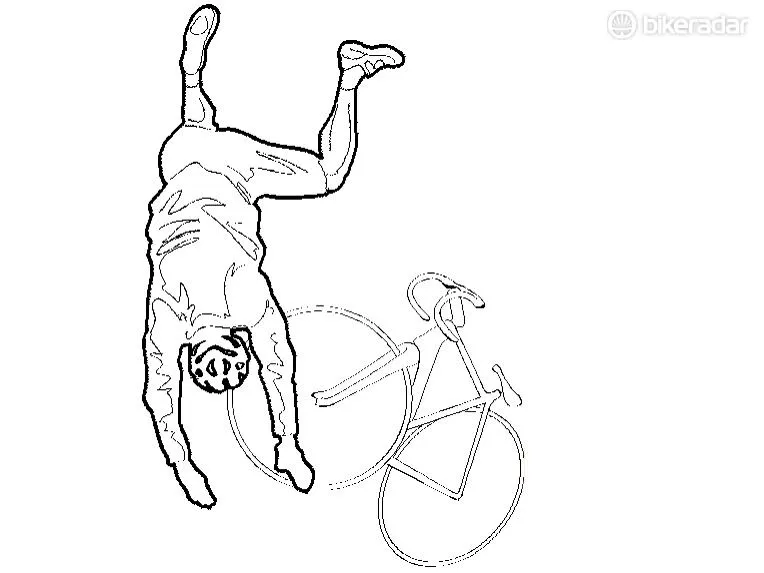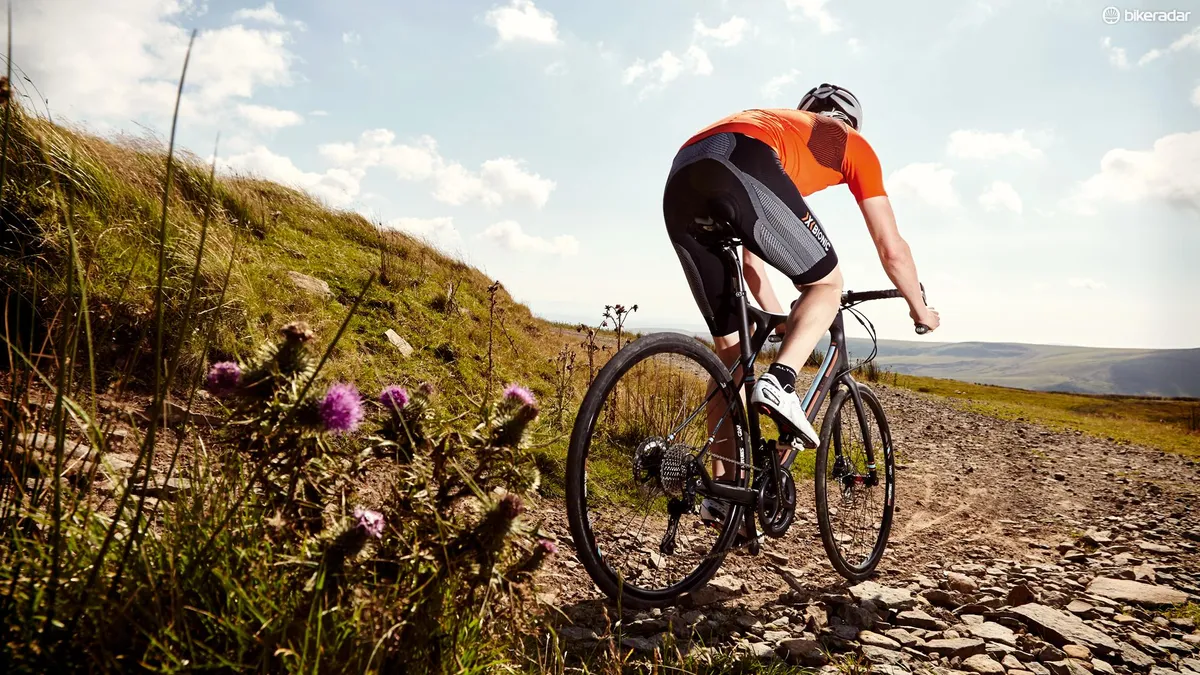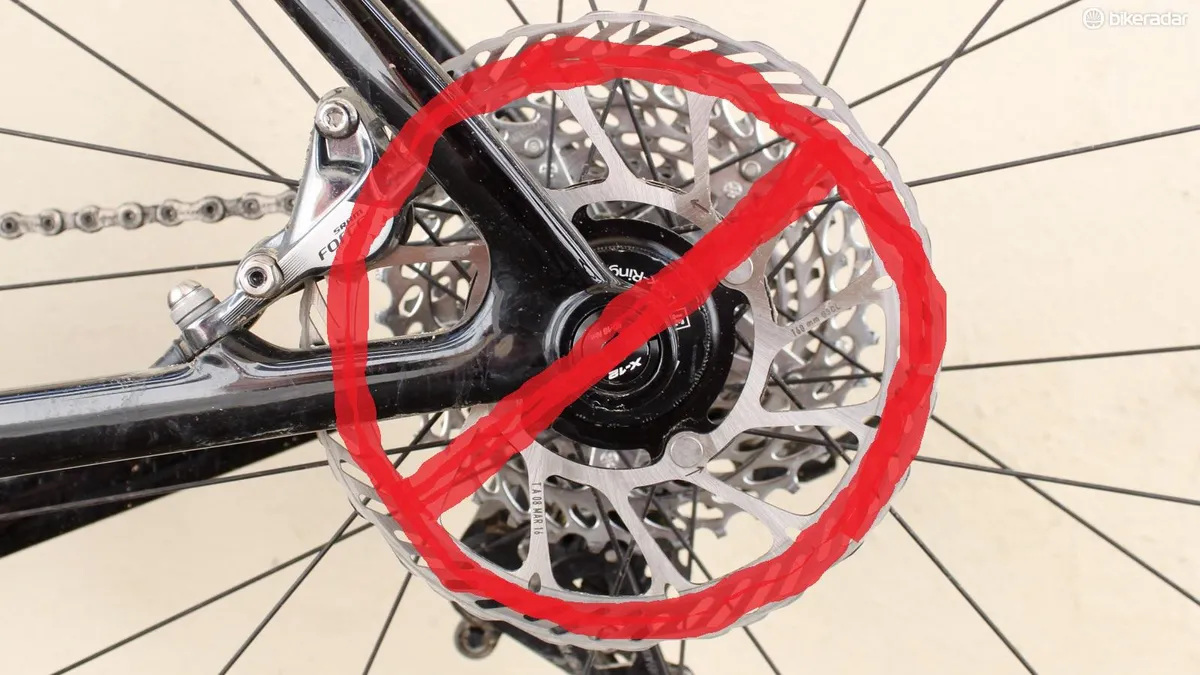Disc brakes are objectively better than rim brakes. They make stopping easier to control, and some cases just flat-out easier. You can one-finger brake to a halt from huge speeds, and even a heavy downpour has virtually no impact on your ability to stop as long as you're staying within the limits of your tyres.
- Road disc brakes: everything you need to know
- Are road disc brakes dangerous?
- Strava tips: 10 of the best
However, discs aren't for everyone. Or rather, at this very moment, I don't think they're the logical choice for every rider out there, and here's why.
Enough is... enough
It's all about sufficiency. Are rim brakes the best possible braking system? Definitely not. But if they satisfy your stopping needs for 100% of your riding, then isn't spending more money to get something better just foolish?
This is another one of those situations where you need to very honest with yourself about the riding you do, as opposed to the riding you would do if you were the ideal version of yourself who's the star of the movie about your life. You may dream of gritting your teeth through snowstorms with your face set in a Rapha-esque grimace, of conquering rain-soaked pavé with tubulars slung across your torso like the legends of old, but would it be more accurate to say that when it's sunny, you pedal a few pleasant miles to somewhere with cake?
And that when it's not sunny, you sigh ruefully, draw the curtains and watch TV shows wherein people try to decide which house to buy? If that's the case, why are you even considering discs?

In clement weather and with proper setup, a half decent set of rim calipers will work just fine unless you're criminally incompetent, exceptionally heavy, or just riding like a dick/vulva. At higher speeds you may have to put a little effort into your braking, but if the reach on your levers is adjusted correctly, your pads have meat on them and strike the rim symmetrically, and your wheels are more or less true, then you should definitely be able to stop.



If funds were unlimited all of this would be moot – given the budget, any of us could build a ridiculously light disc brake-equipped racer that would climb like a demon and stop with terrifying alacrity. Most of us don't have that luxury however, and we need to pick and choose our compromises. If you're in the market for a road bike costing, let's say, £1,000 / $1,500 / AU$2,000, and you simply want the most exciting bike you can afford for general leisure road riding, then I'd argue that as things stand right now, you are still better off not shelling out for discs.
This will likely change in the not-distant future. Disc groupsets are getting cheaper and/or lighter every year, and the entry level is becoming steadily more affordable, but right now there's either a weight or a cost penalty to joining the rotor-y club that's not insignificant. For a given outlay, a bike with discs will invariably have some lower-spec components than its rim brake counterpart.
In extremis
When we make our equipment decisions we tend to think in absolutes: "I need that specific bar bend to be comfortable"; "I can only wear [brand X] shorts because everything else is crap"; "[Shimano/Campagnolo/SRAM] is terrible and [Shimano/Campagnolo/SRAM] is great". If there's one thing that reviewing bikes and equipment has taught me, it's that you can get used to all sorts of things and in practical terms it's just a case of adapting a little.
With safety-critical systems like brakes, that means riding within your limits and making sure everything is working as it should. If you're riding with rim brakes and it's pouring with rain, you need to allow for the fact that your stopping distance will be greater. If it's freezing cold and your hands are hurting, you need to allow for the fact that you can't grip the levers as hard. And so on.
Caveat, caveat, caveat
I cannot emphasise enough how dependent this whole thing is on your precise requirements. Do you ride in the rain a lot? Consider discs. Do you stray off-road or want to run bigger tyres? Consider discs. Do you speed down mountains with panniers full of bricks, in the rain? Consider discs, and also a change of hobby, maniac.

It's easy to fixate on technology like disc braking because it's cool, but it's not the be-all and end-all of cycling. You don't look back on your greatest rides and think, "That was swell, but gosh if only I'd had thru-axles and electronic shifting, that would have been so much better." You remember the feeling of the sun on your back and the wind in your hair, the elation of conquering that climb and carving down that descent. I'm a bike tech geek through and through, but ultimately it's all a means to an end, and that's riding my damned bike.

